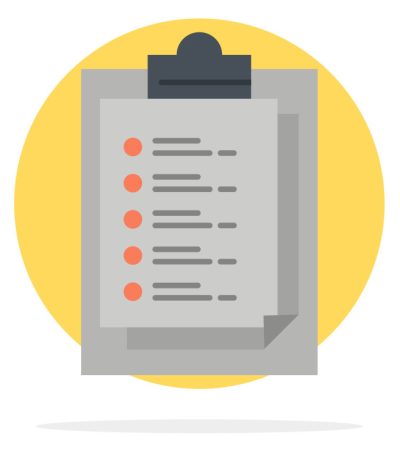Teacher License Exam (TLE) – English Exam
The Teacher License Exam (TLE) – English Exam, conducted by the National Center for Assessment (Qiyas), is a critical assessment for aspiring English teachers in Saudi Arabia.
This exam evaluates a candidate’s professional competence in educational methodologies and English language expertise. It is designed to ensure that educators possess the necessary skills and knowledge to foster effective learning environments and deliver high-quality education.
The mock exams provided by Qlines serve as a vital resource for candidates preparing for this exam, enabling them to practice thoroughly and boost their performance.


Key Features of the Qlines Report Card

One of the most significant advantages of taking the Qlines mock exams is the detailed report card provided to candidates. This report card offers actionable insights to refine their preparation. Key features include:
1. Performance Analysis: A breakdown of attempted, skipped, correct, and incorrect questions to give an overview of the candidate’s performance.
2. Real-Time Insights During the Exam: Insights on how many percent of other candidates answered each question correctly, helping gauge question difficulty and relative performance.
3. Difficulty Level Analysis: Categorization of performance based on low, medium, and high difficulty levels to identify strengths and areas for improvement.
4. Time Management Insights: Data on time spent per question and overall time utilization to enhance exam strategy.
5. Graphical Representation: Visual performance trends presented through charts and graphs.
6. Actionable Recommendations: Specific suggestions to address weaker areas and maximize performance.
By offering such a thorough analysis, Qlines ensures that candidates can approach the Teacher License Exam with confidence and a clear strategy for success.
Professional Competence Dimension
Educational Theories and Pedagogy:
- Principles of learning and teaching.
- Cognitive, affective, and psychomotor learning domains.
- Constructivist and behaviourist approaches to teaching.
Teaching Methodologies:
- Active learning strategies.
- Lesson planning and execution.
- Integration of technology in teaching.
- Differentiated instruction techniques for diverse learners.
Classroom Management :
- Strategies for maintaining an effective learning environment.
- Managing student behaviour and fostering engagement.
- Conflict resolution techniques.
Assessment and Evaluation:
- Designing formative and summative assessments.
- Rubrics and grading methods.
- Using assessment data to improve teaching outcomes.
Educational Psychology :
- Understanding student motivation and development.
- Addressing special educational needs (SEN).
- Cultural and social aspects of learning.
Professional Ethics and Responsibilities :
- Ethical considerations in teaching.
- Understanding and adhering to educational policies.
- Teacher-student-parent relationships and communication.
English Dimension
The English dimension evaluates the candidate’s mastery of language structure, literature, and language teaching methodologies. The primary areas of focus are:
Linguistics and Language Structure:
- Phonology: Sounds, pronunciation, phonetic transcription, intonation, and stress patterns.
- Morphology: Word formation, prefixes, suffixes, and root words.
- Syntax: Sentence structure, grammatical rules, sentence types, and parts of speech.
- Semantics: Word meanings, idioms, expressions, and figurative language.
- Pragmatics: Language in context, conversational analysis, and language functions.
Literature and Cultural Contexts:
- Literary Analysis: Poetry, drama, short stories, and novels.
- Literary Devices: Metaphor, simile, irony, personification, and symbolism.
- Historical Context: Literature periods (e.g., Renaissance, Romantic, Modernism).
- Cultural Awareness: Literature as a reflection of societal values.
Language Teaching Methodology and Pedagogy :
- Teaching Techniques: Direct method, communicative language teaching, and task-based learning.
- Assessment and Evaluation: Formative and summative assessments, rubrics, and feedback methods.
- Classroom Management: Techniques for behavior management and inclusive environments.
- Curriculum Design: Lesson planning, syllabus design, learning objectives, and outcomes.
Applied Linguistics and Language Skills:
- Reading Skills: Comprehension techniques, skimming, scanning, and critical analysis.
- Writing Skills: Essay writing, coherence, cohesion, and organization.
- Listening Skills: Active listening and note-taking strategies.
- Speaking Skills: Pronunciation, fluency, and public speaking.
- Second Language Acquisition: Theories and stages of language development.
Exam Format and Structure
The Teacher License Exam (TLE) – English Exam is structured to provide a comprehensive evaluation of a candidate’s teaching capabilities and language proficiency. Below are the details of the exam format:
1. Examining Body: National Center for Assessment (Qiyas).
2. Exam Language: English.
3. Total Marks: 100.
4. Total Questions: 100.
5. Total Sections: The exam is not divided into distinct sections but integrates questions across all dimensions.
6. Time Duration: 180 minutes (three hours).
7. Breaks: No breaks are provided during the exam.
8. Subjects Covered: A mix of all subjects.
Disclaimer :
The exam format, subjects, and duration may be subject to change. Candidates are advised to check the official Qiyas website for the most accurate and up-to-date information.